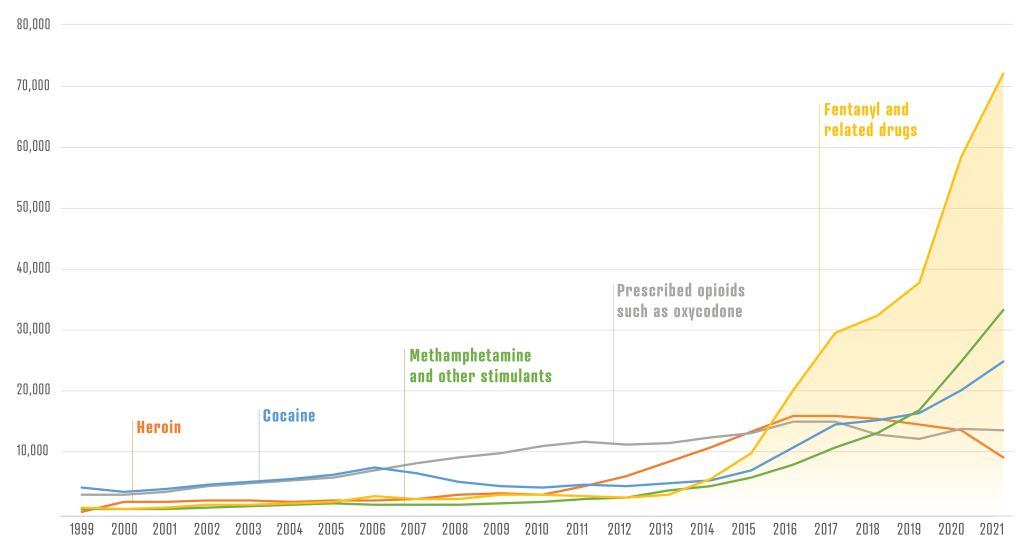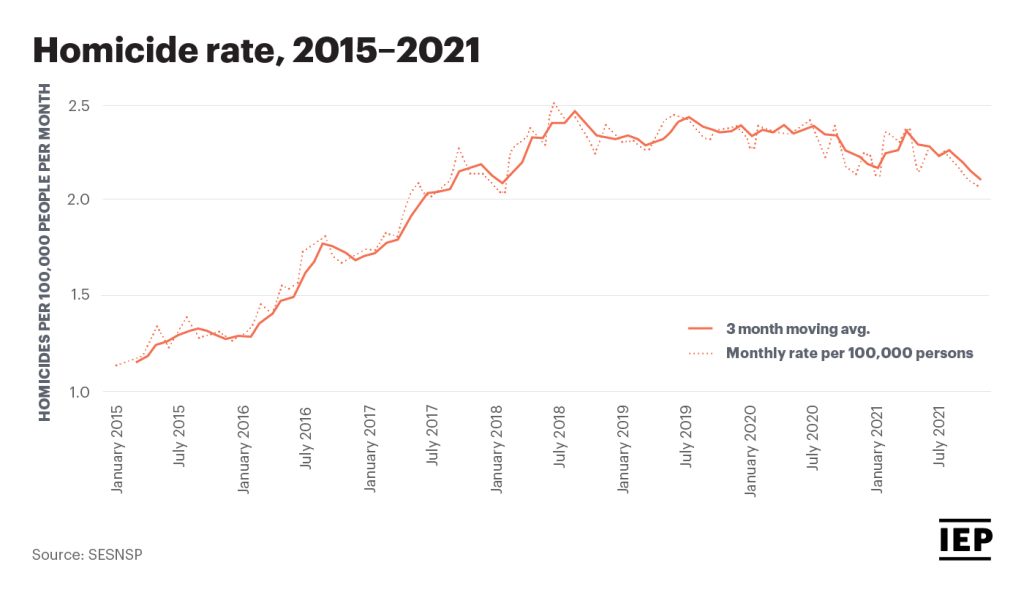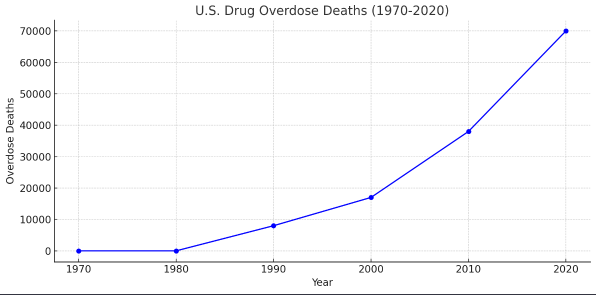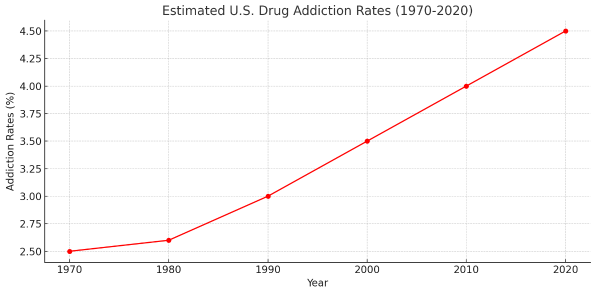Recent proposals by politicians, attorney generals, and the State Department to label Mexican drug cartels as Foreign Terrorist Organizations (FTOs) has far-reaching implications, from law enforcement strategies to international politics and economics. This move could reshape U.S.-Mexico relations, impact border security, and influence the global fight against drug trafficking.
The push for such designations often cites the cartels’ involvement in acts that resemble those of traditional terrorist organizations, such as carrying out violent attacks, destabilizing regions, and challenging governmental authority. This topic has been further highlighted US by the incredible increase in fentanyl use in the United States, overwhelming violence within Mexico, and border security/immigration issues between the two nations.
However, there have been significant concerns and counterarguments against this approach. Critics argue that labeling cartels as terrorist organizations could complicate U.S.-Mexico relations, impact economic ties, and potentially lead to unintended consequences in law enforcement and immigration policies.
Current State of the Drug Trade in the US
The American War on Drugs began in 1971 by President Nixon, and the DEA was established shortly thereafter. In recent years, annual spending on anti-drug trafficking often exceeds $40 billion and over a trillion since it’s inception. Despite these efforts, the drug trade has grown exponentially, leading to an equally meteoric rise in addiction and overdose deaths.
The fentanyl epidemic in the U.S., with drugs predominantly supplied by Mexican cartels, is a major public health concern. For Americans aged 18-45, the leading cause of death is fentanyl and is responsible for 70% of US drug overdose deaths.
The drug is reported to be responsible for 71,000 deaths in 2021, and 73,000 deaths in 2022. From 2016 to 2021, the rate of drug overdose deaths involving fentanyl increased from 5.7 per 100,000 people to 21.6 per 100,000. Drug seizures of fentanyl at the border have also increased 300% in the past two years, indicating the incredible volume proliferation of the drug.

Cartel Violence in Mexico
Cartels in Mexico have led to an astounding increase in violence, most dramatically viewed by the homicide rate. The Mexico Peace Index found that the national organized crime rat has risen 64.2% in the past years. Homicides related to organized crime have taken over 20,000 lives annually for the past five years, and total annual homicides average approximately 35,000 in the same time frame.

Corruption is rampant amongst Mexican governmental entities that would serve as the front line of anti-trafficking efforts.
Law enforcement, the judicial system, the prison system, and the political system are regarded as compromised by cartel corruption efforts. Bribery is commonplace, and both local and national police forces were considered so tainted in the fight against the cartels that it was put into the hands of the Mexican military (where there have also been numerous implications of corruption).
Even the former Mexican President, Enrique Pena Nieto, was accused of receiving bribes from the Sinoloan Cartel during the US trial of famed drug lord ‘El Chapo’ Guzman.
Mexican journalism on the drug trade is inherently risky, leading to the murder of 76 journalists in the country since 2017. This is greater than the total of all of Latin America in the same time frame.
While reliable statistics on drug addiction and overdoses in Mexico are more challenging to acquire, it has been noted by several organizations that both have spiked in recent years, primarily due to fentanyl.
The Call for Cartels to be Classified as FTO’s
Former President Trump has consistently campaigned on naming Cartels as FTO’s, and called on the military to plan for strikes on Cartel leadership and infrastructure, despite rejections from his Secretary of Defense and Joint Chief of Staff.
Following the March, 2023 kidnapping of four American citizens and the deaths of two of the kidnapped, the FTO debate was renewed. Senator Lindsey Graham spearheaded the Ending the Notorious, Aggressive, and Remorseless Criminal Organization and Syndicates (NARCOS) Act along with five other GOP Senators. This was supported by a letter sent from twenty-one Attorneys General.
In the current Republican primary run, many of the candidates have stated they would support moves to classify cartels as FTO’s and the use of military force against them.
In response, Secretary of State Blinken made public statements that the department, responsible for the classification, would consider the move.
Potential Drawbacks
While the designation of Mexican cartels as FTOs could provide additional tools for combating their activities, it also carries significant risks and complexities, particularly in diplomatic and legal arenas.
- Diplomatic Strain:
- Such a designation could strain diplomatic relations between the U.S. and Mexico. Mexico might view this as an infringement on its sovereignty and an overstep into its internal affairs. This could hinder cooperation in areas like drug enforcement, immigration, and border security.
- Impact on Trade and Economy:
- Designating these cartels as FTOs could impact the vast trade relationship between the U.S. and Mexico. It could lead to stricter scrutiny of transactions, affecting businesses and economies on both sides of the border.
- Legal and Law Enforcement Complications:
- This designation would allow for more aggressive law enforcement actions against these groups. However, it could also complicate legal proceedings, potentially leading to broader interpretations of what constitutes support or association with these cartels.
- Impact on Immigration:
- Individuals fleeing violence in Mexico might be implicated or associated with these organizations, complicating asylum claims or leading to unjust treatment of immigrants and refugees.
- Potential Escalation of Violence:
- The designation might escalate violence, as cartels might respond with increased aggression both within Mexico and potentially against U.S. interests.
- Challenges in Targeting Financial Networks:
- While the designation aims to disrupt the financial networks of these organizations, it could also inadvertently affect legitimate businesses and individuals who might be unknowingly connected or coerced to do business with the cartels.
- It Might Not Change Anything
- The demand side of the drug trade remains incredibly strong in the US. The Commission on Combating Synthetic Opioid Trafficking stated the fentanyl crisis cannot be resolved without curbing addiction in the US, fueling the demand for illegal opioids.
- While FTO enables financial tools to freeze cartel assets, experts say there is little to no gain in financial enforcement measures compared to the measures already in place.
- Succession Issues: Would military action cause meaningful results in reducing the drug trade, or just cause further de-centralization and newer, more extreme organizations?
Potential Benefits
FTO designation would enable “Targeted actions against cartel leaders,” in the context of law enforcement and counter-terrorism operations. This refers to focused efforts to disrupt or neutralize the individuals at the highest levels of criminal organizations. These actions can take various forms and are typically more strategic and precise compared to broader law enforcement operations. Here’s a detailed look at what this could entail:
- Military-Style Operations
- Precision Strikes: In some cases, especially under a terrorist designation, military assets might be used to carry out precision strikes aimed at eliminating key cartel figures. This could include drone strikes or specialized military raids.
- Special Forces Deployment: Deployment of special forces or specialized law enforcement units to capture or neutralize high-value targets in hostile environments.
- Enhanced Surveillance and Intelligence
- Advanced Surveillance: Utilizing sophisticated surveillance technologies, including satellite imagery, intercepted communications, and cyber surveillance, to track the movements and activities of cartel leaders.
- Intelligence Sharing: Increased sharing of intelligence between agencies and international partners to build a comprehensive understanding of cartel operations and hierarchy.
- Financial and Legal Measures
- Asset Freezing and Seizures: Targeting the financial assets of cartel leaders, including bank accounts, properties, and other investments, both domestically and internationally.
- Legal Prosecutions: Focusing legal efforts on building strong cases against cartel leaders, potentially leading to extradition requests and trials in jurisdictions with stringent anti-terrorism and organized crime laws.
- Targeted Sanctions
- Individual Sanctions: Imposing sanctions on cartel leaders, including travel bans and prohibiting international financial transactions, to limit their global reach and access to resources.
- Collaborative International Operations
- Joint Task Forces: Forming joint task forces with other countries, especially those where cartels have a significant presence, to conduct operations aimed at capturing or neutralizing cartel leaders.
- Extradition Agreements: Strengthening extradition agreements to facilitate the transfer of cartel leaders to face charges in countries with the legal framework to prosecute them effectively.
U.S. Firearms and Citizens in the Drug Trade
A critical aspect of the drug trade is the use of U.S.-sourced firearms as currency by Mexican cartels. The U.S. is a significant source of the firearms used by these cartels, often traded for drugs. This cycle fuels violence both in Mexico and the U.S. Designating cartels as FTOs could lead to stricter controls and monitoring of firearms exports and transactions, potentially disrupting this aspect of the trade. However, it may also drive these activities underground, making them harder to track and combat.
While there is a commonly held belief that cartels are responsible for the transit of drugs into the US, Customs and Border Patrol statistics report that 86% of convicted traffickers are US citizens, and 0.02% of illegal migrants possess any fentanyl whatsoever. The use of US citizens in trafficking further complicates how FTO enforcement would be handled by law enforcement agencies.
Retribution – Impact on US Law Enforcement & Military Personnel
Should US law enforcement and military personnel become actively involved in targeting cartel personnel under an FTO designation authority, the ramifications are unclear.
Unlike actions against terror organizations elsewhere, the geographic proximity enables the cartel violence to easily and rapidly strike back. Law Enforcement officers and their families work and live in the towns and cities along the border and could be targeted. US-based Mexcian gangs involved in the drug trade could be co-opted to target officers and military personnel nationwide.
Approximately 25 million US tourists travel to Mexico annually, and 1.6 million US citizens live Mexico. US diplomats, business representatives, expats, and tourists could be similarly targeted within Mexico.
The unanswerable question is would cartels react to US actions with the same level of violence exacted on Mexican law enforcement, military, and civilian populations? With an estimated 175,000 active cartel members, the potential for violence is severe.
Economic Impacts
Designating cartels as FTOs could profoundly affect business relations between the U.S. and Mexico. Mexico is the US’s second-largest trade partner (second to China), with 600 billion dollars in total annual trade value. US foreign investment in Mexico is over 100 billion annually.
Of note, Mexico is the fifth largest automobile exporter in the world with factories of all major US-based automobile companies, including Ford, GYM, Honda, Nissan, and Chrysler. This represents an annual 68 billion dollar industry, with further factory expansion plans.
The FTO designation might impact foreign investment in Mexico. Investors could become wary of potential legal ramifications and the heightened security risks associated with investing in a country where FTOs operate.
Enhanced scrutiny and security measures might slow down trade processes, affecting industries and consumers in both countries.
These points become increasingly important as the US seeks other manufacturing options as a result of deteriorating China relations.
Conclusion
The potential designation of Mexican cartels as FTOs presents a complex matrix of benefits and challenges. While it promises enhanced law enforcement capabilities and a stronger stance against drug trafficking and related crimes, it also brings potential diplomatic strains, impacts on trade and foreign investment, and complex legal and ethical dilemmas. The decision will significantly influence U.S.-Mexico relations, the broader fight against international drug trafficking, and the future of border security and public health, particularly in light of the escalating fentanyl crisis.
What’s Your Thoughts?
We want to hear your thoughts on this topic. MTI is made up of thousands of current and former tactical athletes who could be directly impacted by this discussed policy change. Please complete our survey… all responses are 100% anonymous.



